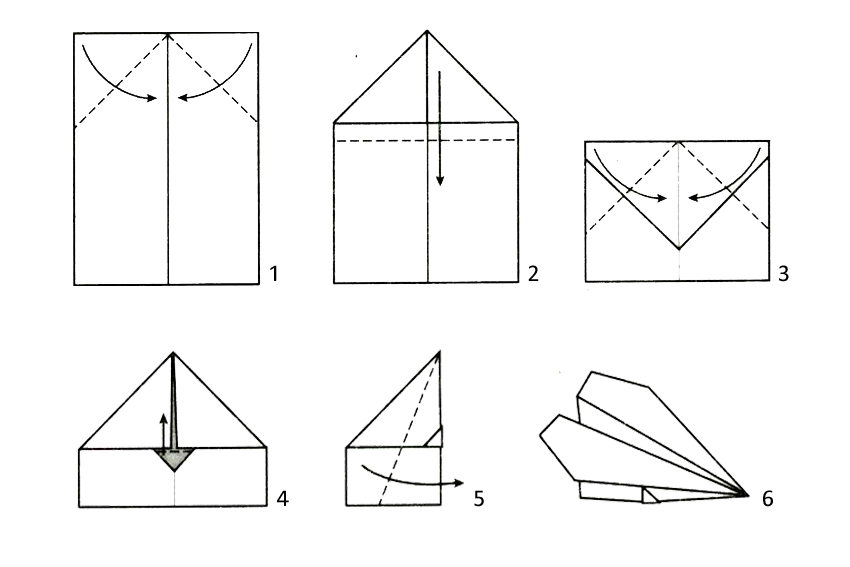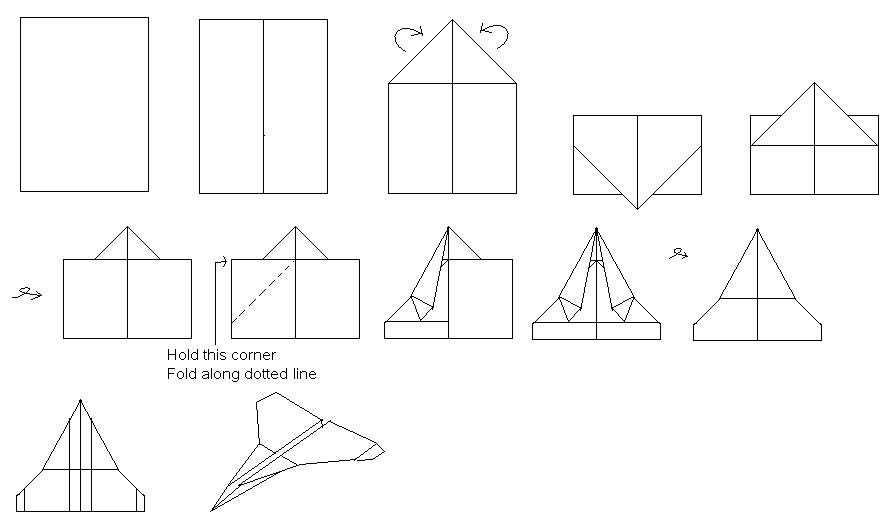4-unfold it forming a cross with the middle line of the sheet and the one we just created. Inspired from a paper jet base fol.

Long Distance Paper Plane How To Make A Paper Airplane That Flies Fast Far Destroyer Make A Paper Airplane Paper Airplanes Paper Airplanes Instructions
5-fold the triangle from top to bottom.

How to make a long distance paper airplane. Step 1 – Prefolding. Take a standard sheet of 8 12 x 11 inch piece of paper. The plane was design by an unknown creator.
If theres an extra crease on one side add it to the other. That way the wind will hit the plane the same way on both sides. Lets learn how make a paper airplane that flies far.
The y-axis vertical is going to be the distance that each paper airplane flew. 6-fold two corners into the middle of the cross formed in step. Welcome to the Channel of best paper planes in the world.
2-fold two corners into the center of the sheet the fold of the first stage. Repeat step 9 except on the other side of the paper airplane 11. TriKdanG realized that although the plane has a nice shape it doesnt fly far so he modified the plane to improve its flying distance.
First begin with a center crease. Make sure the wings are symmetrical. The basic design has come a long way over the years however and its now a breeze to make a paper airplane that can zip along at high speed and cover about the same distance as a good frisbee toss.
Throw your completed paper airplane For the best flight grip your paper airplane where the small. Fold one side of the paper airplane down to make its wing The diagonal part of the airplane should be folded downward so that it lines up with the horizontal bottom edge. 1-fold the paper in half lengthwise.
To create the wings you need to fold the both sides and. Fold in in half long ways then unfold. In image 2 fold the side corners in to the center crease carefully.
Now fold the paper plane again in half towards you. On this origami tutorial I will show you ste. The Classic Fighter is the right one to check out.
Since we are starting with a single piece of paper we cant do to much about weight. The image most people have of paper airplanes involves a badly folded sheet of notebook paper floating lazily around a school classroom. To achieve long flight times and huge distances you need to minimize your weight to wing lift area.
Learn how to build a long distance paper glider that will go further than any other airplane youve made. At this point this should look very similar to the most basic paper airplane design. Long Distance Paper Planes.
How to make a paper airplane paper airplanes or paper plane that flies. Your graph may something like this. Often during the process of making folds you crease the page make the wing length uneven and so on.
On this origami tutorial I will show you step by step instructions of how to mak. Unfold your plane and refold it again. Make sure you fold the paper with thick paper.
Fold this part again one more time to make it thicker even more. On this paper airplane tutorial I will show you step by step instructions of how to make a paper airplane that flies far. Fold the top edges in so that they line up with the center line.
That leaves maximizing the wing area and lift. Therefor these long distance flyers all have large wing areas for maximum lift. On this origami tutorial I will show you step by step instructions of how to make the.
To create the wings fold the top corners awaybehind the paper to the center line. The upper leftright corner points are to meet the center crease with the fold extending to the bottom leftright corners respectively. Lets learn how make a paper airplane that flies far fast boomerang.
Make sure leftright symmetry is exact. Mark each data point with a dot on the graph. For example if a paper airplane was thrown at 20 and flew 40 feet you would move along the x-axis to the 20 mark and then move up the y-axis to the 40 mark and draw your dot.
Add Tip Ask Question Comment Download Step 1. Fold top corners in as for a regular paper airplane. 3-fold the pointed end in two to the imaginary line that marks the bottom two corners of the stage two.

















